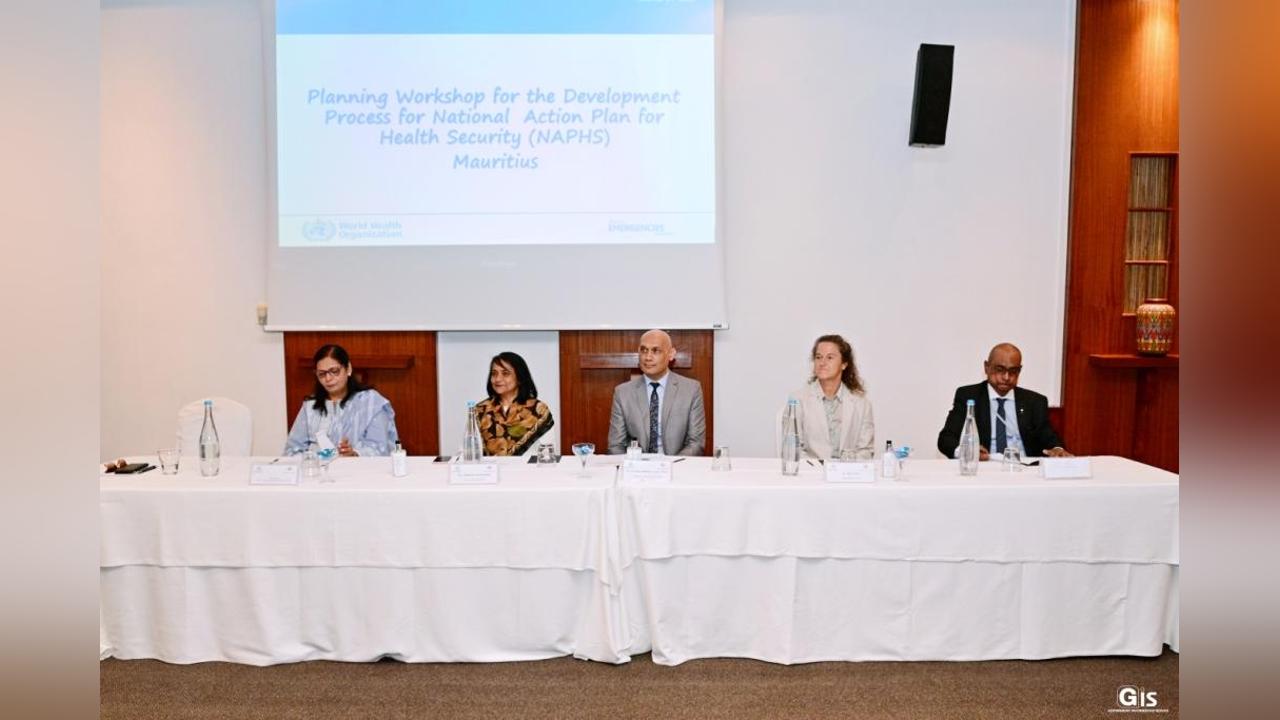
Africa-Press – Mauritius. A five-day consultative workshop, organised by the Ministry of Health and Wellness and the World Health Organisation, on the Development of the National Action Plan for Health Security (NAPHS) for Mauritius, opened this morning at the Sofitel Mauritius L’Imperial Resort and Spa, in Flic en Flac.
The aim is to address forthcoming challenges of an ageing population, and accelerated use of new technologies in the dissemination of efficient medical care and potential new disease outbreak.
The Minister of Health and Wellness, Dr Kailesh Jagutpal, the World Health Organisation (WHO) Representative in Mauritius, Dr Anne Marie Ancia, the Acting Director of the Agricultural Services of the Ministry of Agro-Industry and Food Security, Mrs R. Kureemun, and other personalities were present.
NAPHS, is a five-year strategic plan, developed collaboratively with relevant ministries, departments and agencies that reflects national priorities for health security, coordinates a multisectoral response, identifies partners and allocates resources for health security capacity development.
In his address, Minister Jagutpal stated that the very purpose of NAPHS, is to ensure that the recommendations of the Joint External Evaluation for International Health Regulations are translated into actions.
He pointed out that the NAPHS is listed as a priority under the Government Programme 2020-2024 and the Health Sector Strategic Plan 2020-2024. Mauritius, he recalled, undertook the Joint External Evaluation and assessed its capacities across 19 technical areas in October 2018.
The findings demonstrated that although there has been significant progress, gaps still exist in key core capacities for the country to prevent, detect and respond to public health emergencies, he stated. The Minister highlighted that five overarching thematic areas emerged as necessitating high-level commitment.
They include: review the national legislation, regulations and procedures; develop relevant policy, regulations and guidance to facilitate implementation of the International Health Regulations of 2005; strengthen multistakeholder engagement through relevant and appropriate Standard Operating Procedures; establish procedures and processes that facilitate rigorous documentation; and adopt a culture of continuous learning from every emergency response event is a necessity.
He further indicated that the emergence of the COVID-19 pandemic was a wake-up call as well as has enabled authorities to build on new opportunities. Mauritius, being a country, which is largely opened to the world through its tourism and international financial centre, is surely at risk, he stressed.
The formulation of the NAPHS is therefore, more than ever a priority, he said. As for Dr Ancia, she stated that preparedness is key to ensure that the National Health respond to public emergencies thereby reducing the death toll.
The National Action Plan will define the necessary actions to address future public health emergencies in an effective way and also ensure coordination of all sectors and stakeholders in a more holistic and swift response, she added.
For her part, Mrs Kureemum underlined that food security and public health are important subject matters at the fore of Government’s agenda amid social imbalances and an ageing population.
Mauritius, she underlined, has aligned it’s food laws to international standards to support the food system in line with the Sustainable Development Goals.
She emphasised on the need for Mauritius to consolidate its food system, increase food production in the most sustainable manner and ensuring good quality food products for a healthy population.
For More News And Analysis About Mauritius Follow Africa-Press






